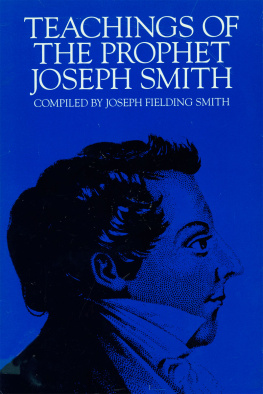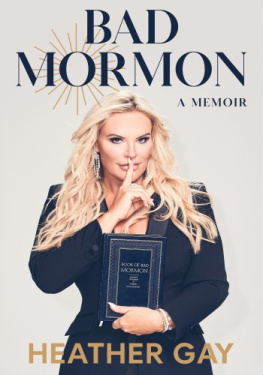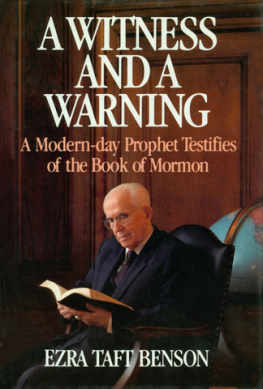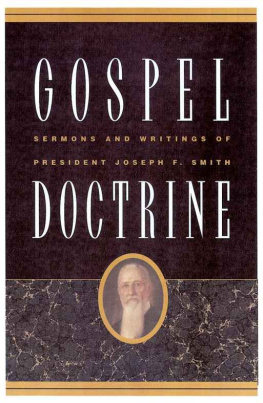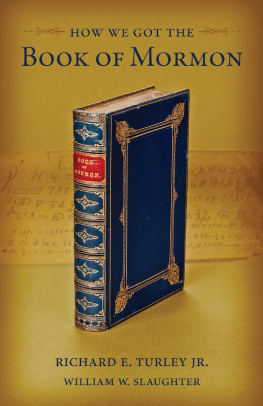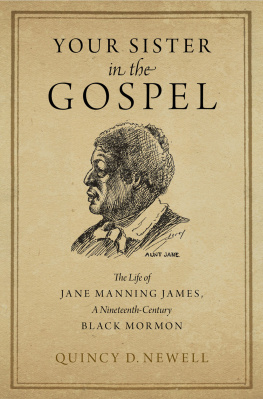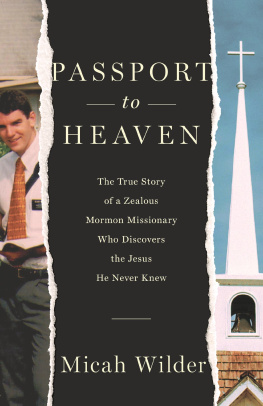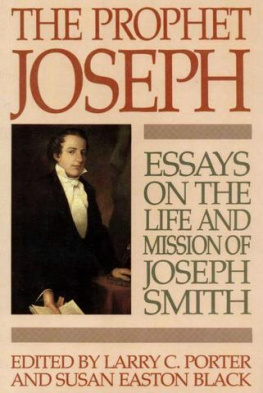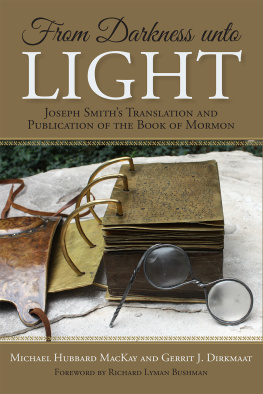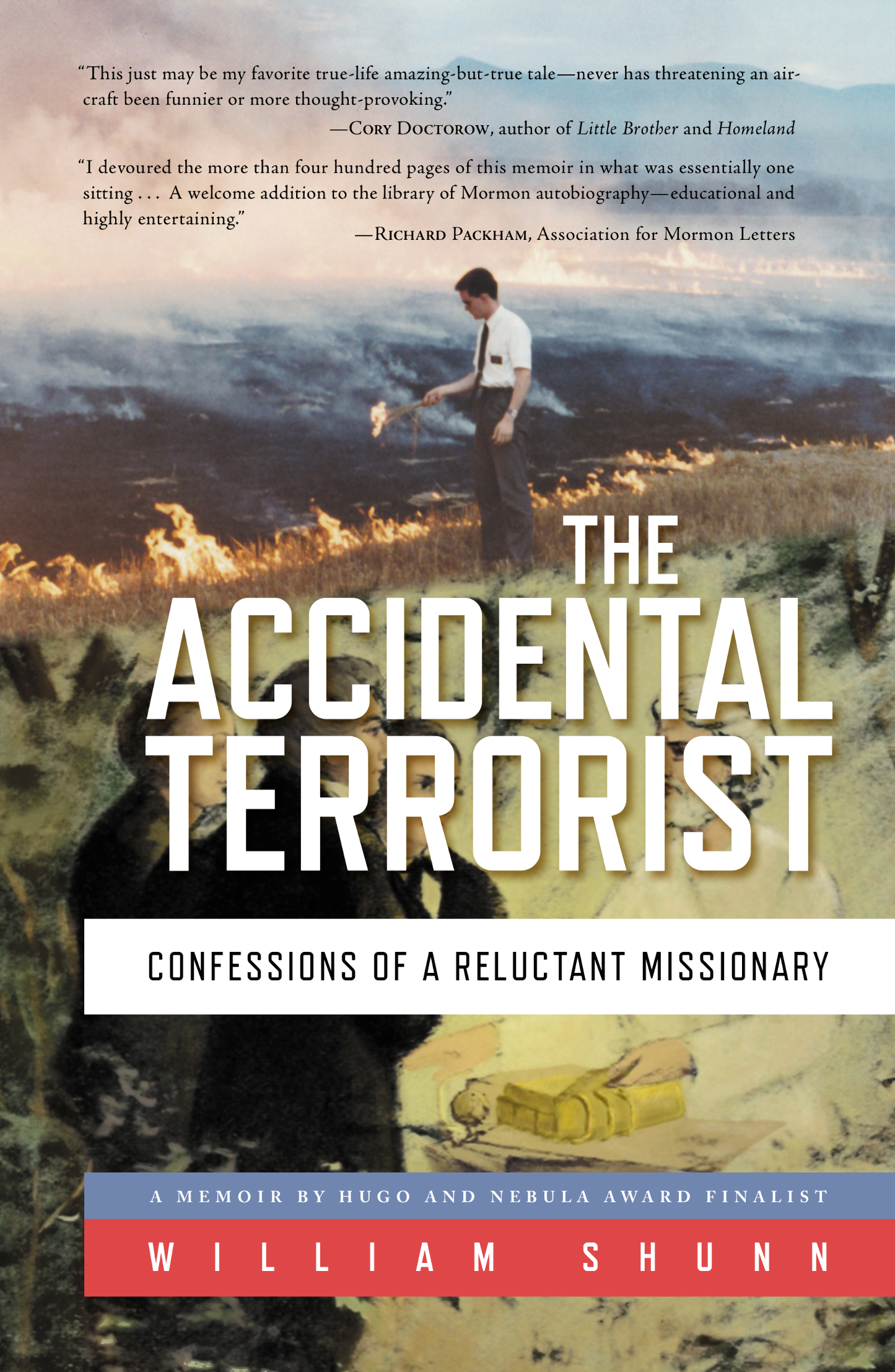
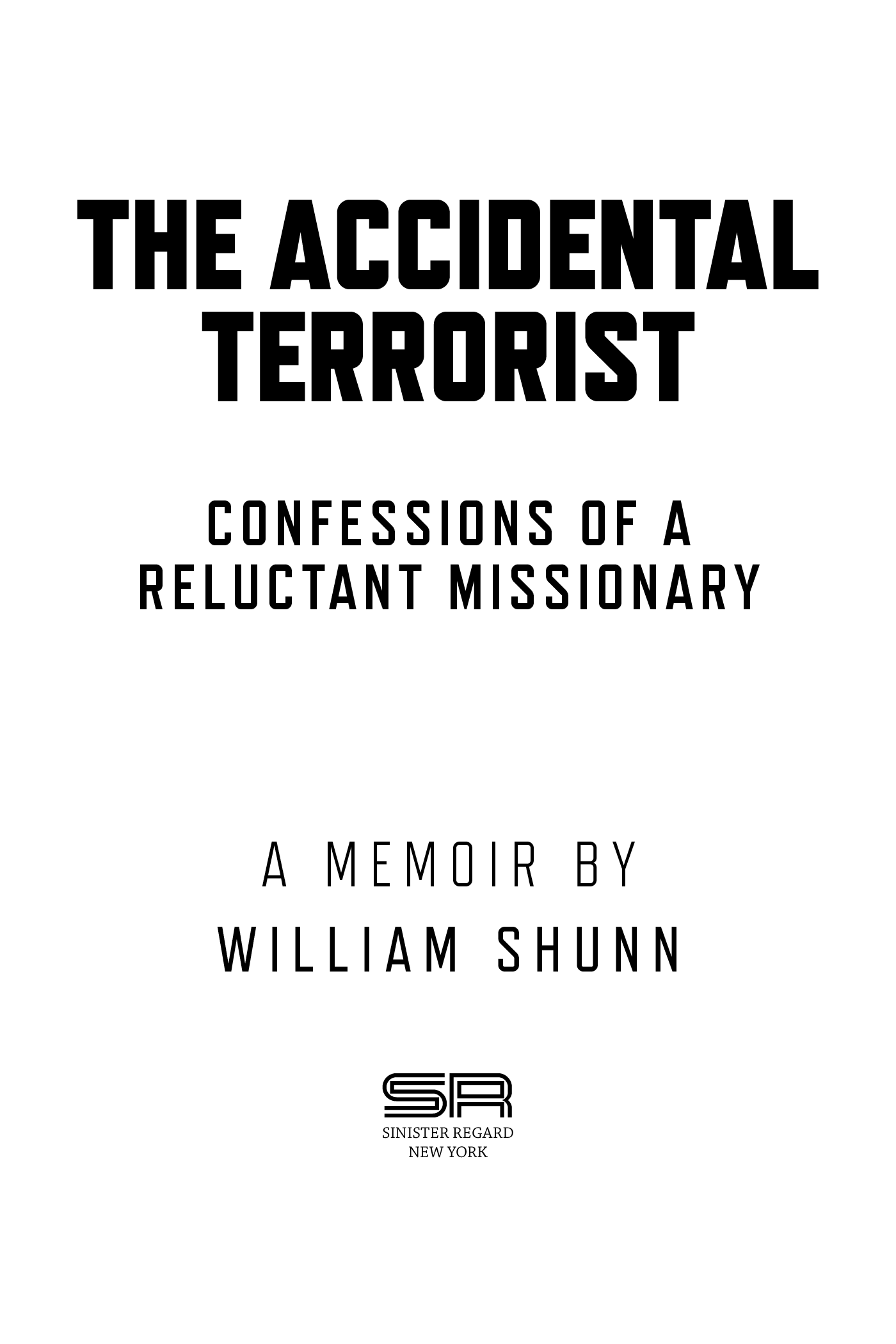
Copyright 2015 by William Shunn
All rights reserved
Electronic Edition
ISBN-13: 978-1-941-92854-7
ISBN-10: 1-941-92854-4
Cover photograph by Tim Bishop
Cover illustration by Everett Historical/Shutterstock
Author photograph by Colin Poellot
Sinister Regard
New York
For my podcast listeners,
who made this book seem possible.
But especially for Laura,
who makes everything seem possible.
Note
This book is not a work of fiction. It is a memoir, achronicle of a specific period in my life as I recall it. In someinstances Ive made small changes to the chronology of events forthe sake of narrative clarity. Dialogue is intended not as atranscription but as a representative amalgam of realconversations. Otherwise, Ive attempted to reconstruct theseevents as accurately as possible, as I experienced them. Ive beenaided by church papers, legal documents, newspaper articles, e-mailexchanges, maps, calendars, weather reports, and my own earlierwritten or recorded versions of this story, but for the most partmy own slippery memory has served as my most important resource.
Some of the participants in these events behaved in waysthat, while innocuous enough to outsiders, might cause them somemeasure of embarrassment within the Mormon community today. Ivetried to conceal their identities as best I can without distortingthe story. The only contemporary characters who appear under their ownnames are the members of my immediate family and one classmatefrom a university summer writing program.
A mans memory is bound to be a distortion of his pastin accordance with his present interests, and the mostfaithful autobiography is likely to mirror less what aman was than what he has become.
Fawn M. Brodie, No Man Knows My History
Prelude
2/23/1987
The detective unlocks my tiny room and drags a plastic chairin from the hallway.
Mister Shunn, she says, Id like to ask you some questionsnow, if you have a few minutes.
Im not going anywhere, I say, narrowing my eyes. Mystinging eyes.
Theres no one but the detective and me in this consultationbooth, no knob on the inside of the door. Thedetective locks us in, sits down, crosses her legs, and smoothsher short, short skirt.
I squirm in my chair. Shes disconcertinglyblond, mid-thirties. Im nineteen years old, and I havent beenalone so close to a woman in five months. With no table between us,our knees nearly touch. This is against missionrules in so many ways, I cant even count. She arranges a stenopad atop her bare thigh, pencil sharpened and poised.
Should I call you, what is it, Elder instead?
I try to breathe easy and keep my eyes above her neck.Either way.
Your name, please, Elder?
Im confused. You used it a minute ago.
For the record. Her green eyes dont blink. Full name.
I touch the spot on my sweater where the black name tagshould have been. Donald William Shunn. The Second.
Age?
Nineteen.
Are you a Canadian citizen?
No, Im American.
And youve been in Canada for how long?
Five months, about.
Any previous criminal record?
No.
She takes sharp, efficient notes in shorthand, a skill Ididnt know still existed.
Okay, Elder, she says, crossing her legs the other way.Lets talk about your activities today.
I keep my eyes up, up. Ive been through this already, withthe constable at the airport.
She shrugs. Now youre going through it with me, and youllprobably go through it with someone else after that. Thats howthese things go.
Id like to talk to my mission president.
So would we, Elder. We take terrorism very seriously.
The word knocks the wind out of me. What?
Terrorism, conspiracy...
Conspiracy? Theres no conspiracy.
She taps her pencil against the pad. Imagine what it lookslike from here.
Im going to prison. Im going to prison, and Im going todie there.
Im not a terrorist. The words grate in my throat. Ialready explained what happened.
Explain it to me. Help me out here. We cant get any of yourpeople on the phone. All we have is you. All you have is you.
I close my eyes, trying to work my frozen lungs. How manytimes was Joseph Smith in scrapes like this? Plenty, and he gotthrough it.
Well, no. Actually, they shot him in the end. But I try notto think about that. I can get through this.
Elder Shunn, tell me, says the detective. Tell me how youended up here.
My impulse is to blurt out everything. I take a deep breath.I choose my details with care.
Book I
The Missionary Imposition
9/24/1986 - 12/3/1986
And it came to pass that many of the Lamanites did gointo the land northward; and also Nephi and Lehi wentinto the land northward, to preach unto the people.
Helaman 6:6, The Book of Mormon
Chapter 1
At the tap on my shoulder I jerked my head. Elder Shunn,youre up, whispered Elder Rosenberg.
Time for my intake interview.
I stood and picked my way through the cluster of foldingchairs in the darkened front room. The apesa.p.s, or assistantsto the presidenthad drawn the heavy drapes and were nattering onabout mission procedures, with transparency sheets and an overheadprojector as aids. Elder Fearing and Elder Hardy had cheerfullyannounced that each of us would have 70 proselytizing hours a weekto look forward to, at least eighteen of them knocking on doors. Ten solidBook of Mormon placements would be the minimum weekly goal, alongwith six first discussions. The monthly goal would be two convertbaptisms.
I hated talking to strangers, let alone about religion. Twoyears of this? Who was I kidding? Id be lucky to last two weeks.
Near the doorway watching the proceedings sat Sister Tuttle,a short, round woman in her late fifties with carefully coiffedhair in store-bought auburn. She smiled up at me and took my hand.
He loves missionaries, Elder Shunn, she whispered, meaningher husband. Youll be fine.
I looked back at the other ten greeniesnine elders and onesistermostly teenagers like me, indistinct and unformed in thegrainy gray light. The boys wore dark suits and ties, SisterCrowley a pullover sweater, conservative skirt, and low-heeledshoes. Black plastic name tags adorned our chests. We had justspent three intense weeks together in the spiritual boot camp thatwas the Missionary Training Center in Provo, Utahliving in dorms,eating cafeteria food, and being drilled in the arts of preaching,persuasion, and conversion. After solemn farewells to family andfriends that morning at Salt Lake International, we had boardedour flight north to Calgary with backslapping bravado. Two hourslater we stood on Canadian ground, clutching work visas in oursweaty, anxious hands. It was real. We were missionaries now.
I ghosted down a hallway of whitewashed cinder block. Outsideit might be sunny, but gloom ruled this dim limbo. Soft voicesmurmured from cubicles nearby as the elderly office staff keptbusiness rolling. I touched my back pocket with longing but didnttake out my wallet. I was trying to ration the time I spentstaring at Katrina, and at the special scrap of chewing-gum foilstashed behind her photos.
I passed the front foyer, with its framed painting of JesusChrist. How disconnected from the accompanying photographs of theprophet and his counselors it seemed, how much less real thanthose three old men with their mild smiles and expensive suits.Like a television program shot part on film and part on tape, theelements didnt quite harmonize.
Next page

